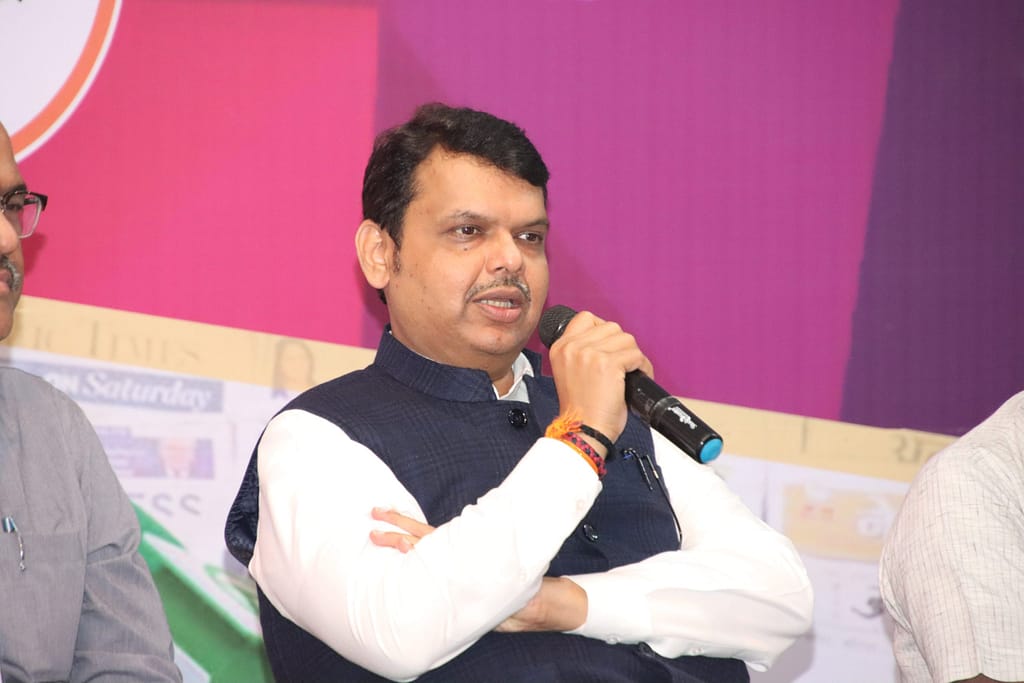Memories of the Emergency days might still haunt many veteran politicians, activists, and journalists many of whom were imprisoned and tortured or went underground for a long time protesting against the undemocratic and anti-constitution rulings including the cancellation of elections, suspension of civil liberties, censoring of the press, etc. by the Indira Gandhi government in the Center in 1975. As a consequence, the family members of the victims had to go through a lot of uncertainties and hardships that changed the course of life for some. Son of an activist of that era, Devendra Fadnavis too had a bearing on his life from the Emergency, as his father, the late Gangadharrao Fadnavis, was arrested from home at 2 o’clock in the morning and put in jail for an indefinite period. In the 50th year of the June 25, 1975 Emergency, Devendraji decided to honor the people who fought for democracy during the Emergency struggle
The 1975 Emergency was a ‘lawful suspension of laws’ as written by historian Professor Gyan Prakash, to crush all opposition to the Indira Gandhi government’s autocratic acts to hold on to power through election malpractices, ‘committed bureaucracy,’ flouting court orders, and so on. The day of imposition of Emergency is considered a black day in the history of Indian democracy. In the eyes of many political parties emergency in India in 1975 was the murder of democracy. A series of political, economic, and social challenges preceded the declaration of the Emergency. The 1971 general elections, which saw a landslide victory for Indira Gandhi and her party, the Indian National Congress, were followed by accusations of electoral malpractices. The most significant challenge came On June 12, 1975, when the Allahabad High Court found Indira Gandhi guilty of electoral misconduct and disqualified her from holding office for six years. This judgment, combined with growing opposition movements, created political instability in the country, against which, on the recommendation of Indira Gandhi’s government, President Fakhruddin Ali Ahmed declared a state of Emergency under Article 352 of the Constitution. June 24, 2024, marked the 50th year of the imposition of Emergency.
Devendraji’s refusal to study at Indira Convent School
The 1975 Emergency inflicted a massive number of raids, arrests, and imprisonments of political leaders, activists, and journalists across the country, whoever dissented from Indira Gandhi’s government. Devendraji was very young at that time. His father also got arrested as he was a member of the Rashtriya Swayamsevak Sangh in Nagpur and also an activist of Janasangha, the origin of today’s BJP. Incidentally, the school where young Devendra used to study at that time was the Indira Convent School in Nagpur. The arrest of his father triggered a dissent in the mind of young Devendra so much so that he refused to continue studying in the Indira Convent School, as it was named after someone responsible for his father’s unwarranted arrest. He remained so uncompromising in his decision to change his school that finally he was put in another school in the locality called Swarashwati Vidyalaya.
This is not to be seen as a child’s adamancy but a spark that later became a fire. Following his father’s footprints Devendra too associated himself with the RSS and grew up as an activist for people’s rights and social causes before taking steps in politics. So no wonder that Devendra Fadnavis, who carries a legacy of civil rights and protests would like to acknowledge the struggle and sufferings of those who fought to save democracy from an autocratic regime.
The decision to honor those jailed during the 1975 Emergency
The State of Emergency was declared on 25 June 1975 and lifted on 31 March 1977, putting the country through a traumatic period of 21 months. Widespread restrictions on personal freedom, mass arrest without trial, restrictions on social assembly, etc. created a climate of fear during this time. Apart from the activists even common men had to face troubles. Many people under mere suspicion lost their jobs, leading to deprivation for their families. But notwithstanding the atrocities, the protests and struggles couldn’t be vanquished. Devendra Fadnavis decided to honor the people who were imprisoned for their fight for democracy, also called the second freedom struggle by some. During his 1st term as the CM Devendraji placed this proposal in a cabinet meeting on January 2, 2018. For this, a sub-committee of 9 members was appointed under the chairmanship of the then Revenue Minister. This committee decided on a scheme to provide pensions to those jailed for protesting against the 1975 Emergency or their spouses if they were not alive. In this, a monthly honorarium of Rs 10,000 was decided for those who were jailed for more than a month and Rs 5,000 for their spouses after their deaths. Similarly, a monthly honorarium of Rs 5,000 was decided for those who were jailed for less than a month and Rs 2,500 for their spouses after their deaths. This resolution was implemented properly. When a question was asked in this regard, on June 25, 2019, Devendraji informed the Legislative Assembly that 3267 people had been granted honorariums until then.
Scrapping of the scheme by the MVA and revival by the Mahayuti
After the elections in 2019, the people voted for the BJP-Shiv Sena alliance. But Uddhav Thackeray broke this alliance to become the Chief Minister making another alliance with the Congress and the NCP. The new government immediately started suspending most of the Fadnavis government’s projects, even this cabinet decision also had the same fate. The Thackeray government through a cabinet meeting on 2 June 2020, canceled the decision to honor those who fought for democracy during the Emergency. Thus, this scheme went into oblivion from 2019 to 2022.
Around the middle of 2022, the state witnessed another change of power through which the BJP-Shiv Sena coalition government formed the Mahayuti government. With Eknath Shinde as the CM and Devendra Fadnavis as the Deputy CM, the Mahayuti government decided in the cabinet meeting on 14 July 2022 to revive the scheme to honor those who had to endure imprisonment during the Emergency, which was scrapped by the Maha Vikas Aghadi government. Accordingly, a government decision was issued on 28 July 2022, finalizing the start of the scheme. In this way, Devendraji fulfilled his wish to honor the victims of the 1975 Emergency.

